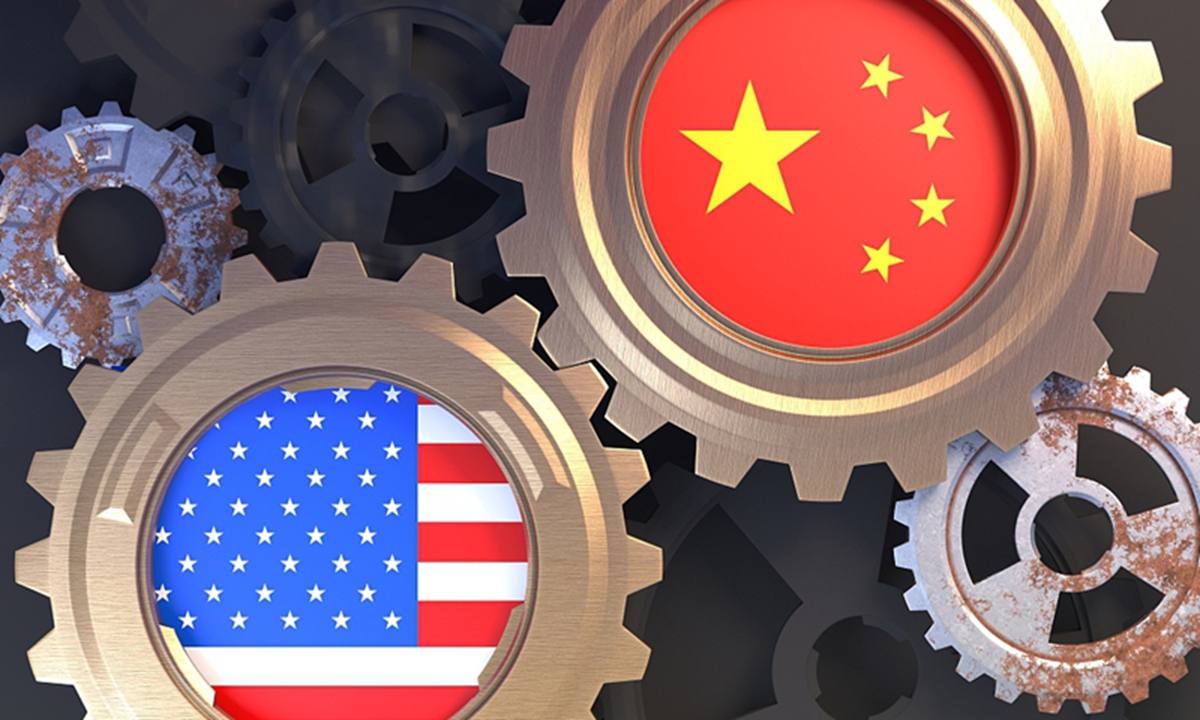GT Voice: US faces critical policy choice on China as protectionism bites into its economy

China US
The Biden administration on Monday announced a two-year tariff exemption for solar panels from four Southeast Asian nations, a development that came after industrial complaints that the high cost of solar panels have caused a freezing of solar projects in the US.It was the latest example of how the US has had to relax import restrictions to meet domestic demand for cheap supply of imported products, even though it was against the wishes of those who believe higher trade barriers are needed to help revive the country's domestic manufacturing of solar panels.
This is not the first time the US has suspended its protectionist policy because of actual economic problems, and it won't be the last. There is every reason to believe that the marginal effect of protectionist measures is diminishing in the face of severe economic challenges. Shifting solar panel production to Southeast Asian nations is something American manufacturers had to do. The US imposed heavy tariffs on Chinese-made solar panels to shut them out of its market, but only to see higher costs of solar energy and failure to drive up its own manufacturing.
Over the years, the US has been using protectionist policies to hedge against structural problems in its economy. The hollowing out of its manufacturing sector and the financialization of the economy have led to a vicious cycle of the US economy characterized with the lack of real industries, a shrinking middle class, and the degrading of its fiscal status due to a reduced taxation base.
Yet, with serious challenges facing the US economy, setting up trade barriers only make Americans more vulnerable to soaring prices and frequent supply shocks, instead of addressing the structural economic problems. At present, US inflation hit a four-decade high, while the Fed's policy shift is likely to increase the risk of a recession.
To solve or alleviate its current economic difficulties, the US needs to remove trade barriers not only on specific items like solar panels, but also on its trade with China.
While US Trade Representative Katherine Tai on Monday said fighting inflation is a more complicated issue than can be addressed with a "singular focus" on China tariffs, the Biden administration does face a critical choice of its future economic policy as to whether to import more Chinese goods with less tariffs to lower inflation, or to keep inflation at high by retaining tariffs on Chinese products.
Fundamentally speaking, this is essentially more of a political policy choice than economic policy one, because the current choice dilemma is derived from the US containment policy toward China. The US trade policy is in the shadow of its strategy to contain China by squeezing the latter out of the global industrial chains and supply chains.
So if the US really wants to alleviate its inflationary pressure and address other economic problems, it needs to figure out how to reduce political interference in its trade policy and how to avoid politicizing economic and trade issues. As long as it follows the rules of the global trade, then US inflation can be tamed.
The global container shipping rates have been on the decline over the past months, with the World Container Index compiled by London-based Drewry Shipping Consultants down nearly 20 percent since the beginning of this year. If, at this time, the US rolls back its tariffs on Chinese goods, it would certainly help lower the inflation.
The US has defined China as its biggest strategic competitor, but the US approach with a Cold War mentality won't work on China. This is because the two economies are inextricably linked and integrated, and it is an inevitable trend for both sides to take advantage of each other to facilitate their own development. Any attempt to go against trend will incur ever-growing losses. Washington needs to make the right decision before it is too late.
